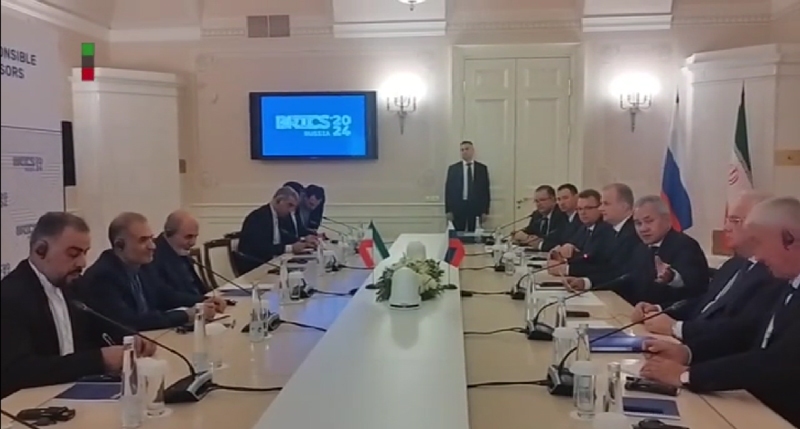Russia Reaffirms Commitment to Iran in St. Petersburg: Key Takeaways from the BRICS Summit
In a significant development at the recent BRICS Summit held in St. Petersburg, Russia, high-ranking officials from Moscow and Tehran reaffirmed their commitments to each other, emphasizing their cooperation on multiple fronts. This political rendezvous highlighted Moscow’s steadfast commitment to previous agreements with Tehran, especially concerning the Zangezur region and the broader geopolitical dynamics in the Persian Gulf.
Background and Context
The BRICS Summit, an annual meeting of the world’s major emerging economies—Brazil, Russia, India, China, and South Africa—serves as a crucial platform for discussing global economic and political issues. This year’s summit in St. Petersburg was no exception, turning the spotlight on security matters and international cooperation.
Key Statements and Agreements
Sergey Shoigu’s Reaffirmation
Sergey Shoigu, Russia’s defense minister, used his platform during a side meeting at the summit to state unequivocally that Moscow remains faithful to its previous agreements with Tehran regarding Zangezur. For context, the Zangezur region, an area of strategic importance and tension between Armenia and Azerbaijan, holds significant geopolitical weight, influencing regional security dynamics.
Furthermore, Shoigu addressed issues in the Persian Gulf, particularly concerning the sovereignty of three disputed islands. He emphasized, "Moscow supports the sovereignty and territorial integrity of the Islamic Republic of Iran regarding the three Iranian islands in the Persian Gulf."
Statements by Ali Akbar Ahmadian
Tehran’s perspective was represented by Ali Akbar Ahmadian, the Secretary of Iran’s Supreme National Security Council. Ahmadian echoed the sentiment of bolstering ties with Moscow and stressed Iran’s eagerness to expand cooperation, particularly in the economic sphere. This statement aligns with Iran’s ongoing strategic pivot to strengthen alliances with non-Western powers amidst a backdrop of continued sanctions and global economic shifts.
Implications for Global Politics
The reaffirmation of commitments between Russia and Iran at the BRICS summit carries significant implications:
-
Regional Stability: Russia’s continued support for Iran’s territorial claims and agreements signifies a stabilizing force in a region fraught with geopolitical tensions.
-
Economic Cooperation: Enhanced economic cooperation between Russia and Iran hints at broader strategies to circumvent Western sanctions and build resilient regional economies.
- Strategic Alliances: The solidarity demonstrated by BRICS nations accentuates their role in advancing global multilateralism, offering an alternative to Western-dominated international policies.
A Look Ahead
As the 14th Meeting of BRICS High-Ranking Officials responsible for security matters wraps up in St. Petersburg, the echoed feelings of cooperation and mutual respect between Russia and Iran will likely carry forward into future negotiations and alliances. The heightened focus on economic collaborations and territorial integrity underlines a broader geopolitical strategy that both nations seem keen to pursue.
For ongoing updates and further details, you can visit the official BRICS website.
This pivotal meeting marks a critical juncture in Russia-Iran relations and sets a clear agenda for both countries as they navigate the complexities of regional and global politics.
For more insights on Iran’s perspective on the role of BRICS in global multilateralism, check out our detailed feature.
